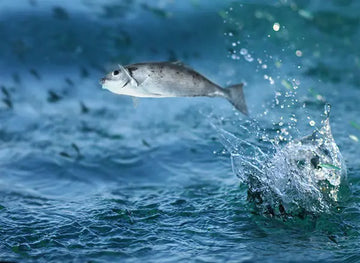Iftar, the meal that breaks the fast during Ramadan, is rich in tradition. While dates and grains are common today, fish once played a vital role in nourishing fasting individuals across various civilizations. From ancient Egypt to medieval Islamic societies, fish was a reliable source of essential nutrients, offering much-needed energy after long hours of fasting.
Fish in Early Civilizations
In ancient Egypt, fish was a staple for the lower and middle classes, sourced abundantly from the Nile. Dried, salted, and grilled fish provided protein and fat, making it an essential part of the diet, especially during fasting periods.
Greek and Roman societies also valued fish for its nutritional benefits, particularly during religious fasting. Fish markets thrived in ancient Rome, with salted fish being a popular trade item. Its richness in omega-3 fatty acids supported brain function and overall well-being.
During the Islamic Golden Age, fish was a common iftar ingredient in coastal regions. Medieval Muslim physicians recommended it for its easy digestibility and ability to quickly restore energy levels.
Nutritional Benefits of Fish for Fasting
Modern studies confirm that fish is ideal for breaking a fast. Its high protein content helps regulate metabolism and combat fatigue, while essential fatty acids aid in muscle recovery and energy replenishment. Despite these benefits, fish has become less common in iftar meals.
Why Fish Has Faded from Iftar Traditions
Over time, cultural shifts favored sweet and carb-heavy foods for iftar, sidelining traditional protein sources like fish. The rise of quick, fried meals also made fish less appealing due to its perceived preparation time. Additionally, some cultures began to associate fish with lighter meals rather than the hearty dishes usually served at iftar.
Reviving Fish in Iftar Meals
Given its historical and nutritional significance, bringing fish back to iftar could benefit health-conscious individuals. Options like grilled or baked fish, fish soups, or pairing fish with whole grains offer light yet nourishing alternatives.
Conclusion
From ancient Egypt to the Islamic Golden Age, fish was a cornerstone of fasting diets. Modern research reinforces its benefits, suggesting that reintroducing fish into iftar traditions could offer a balanced approach to breaking the fast. Embracing this forgotten tradition might just be the key to healthier eating during Ramadan.





